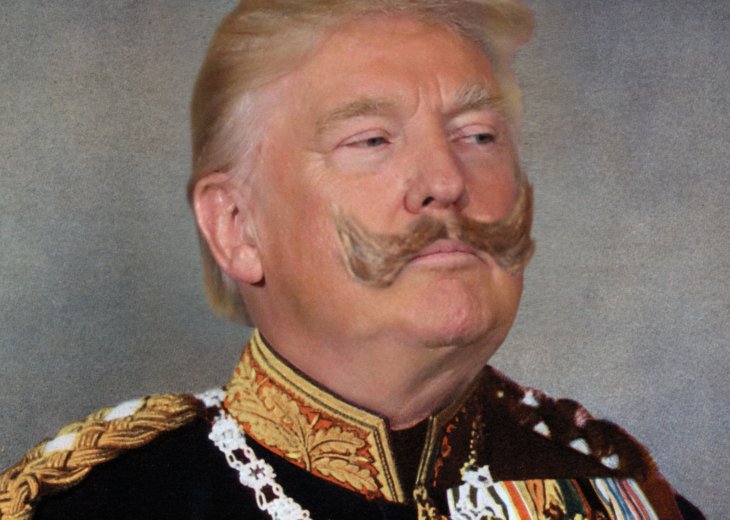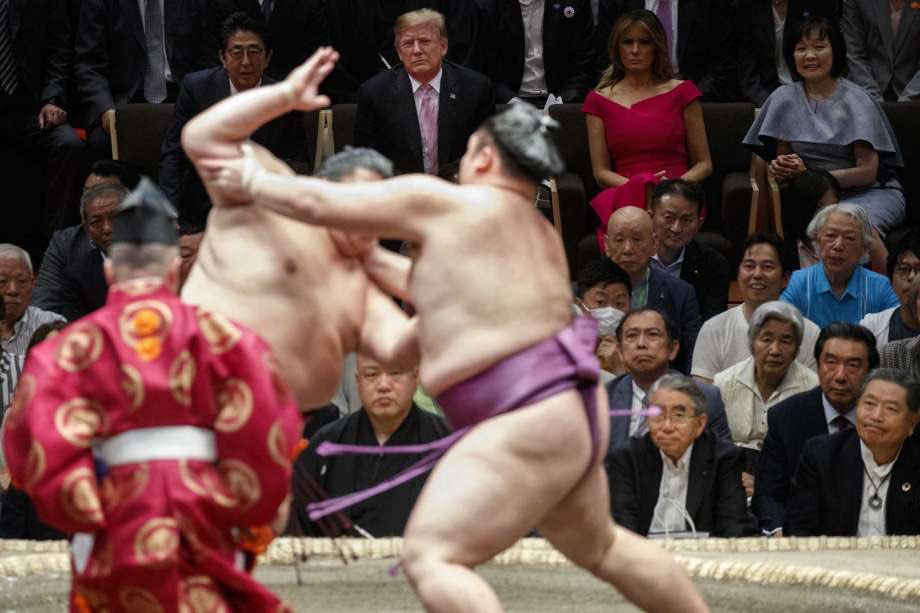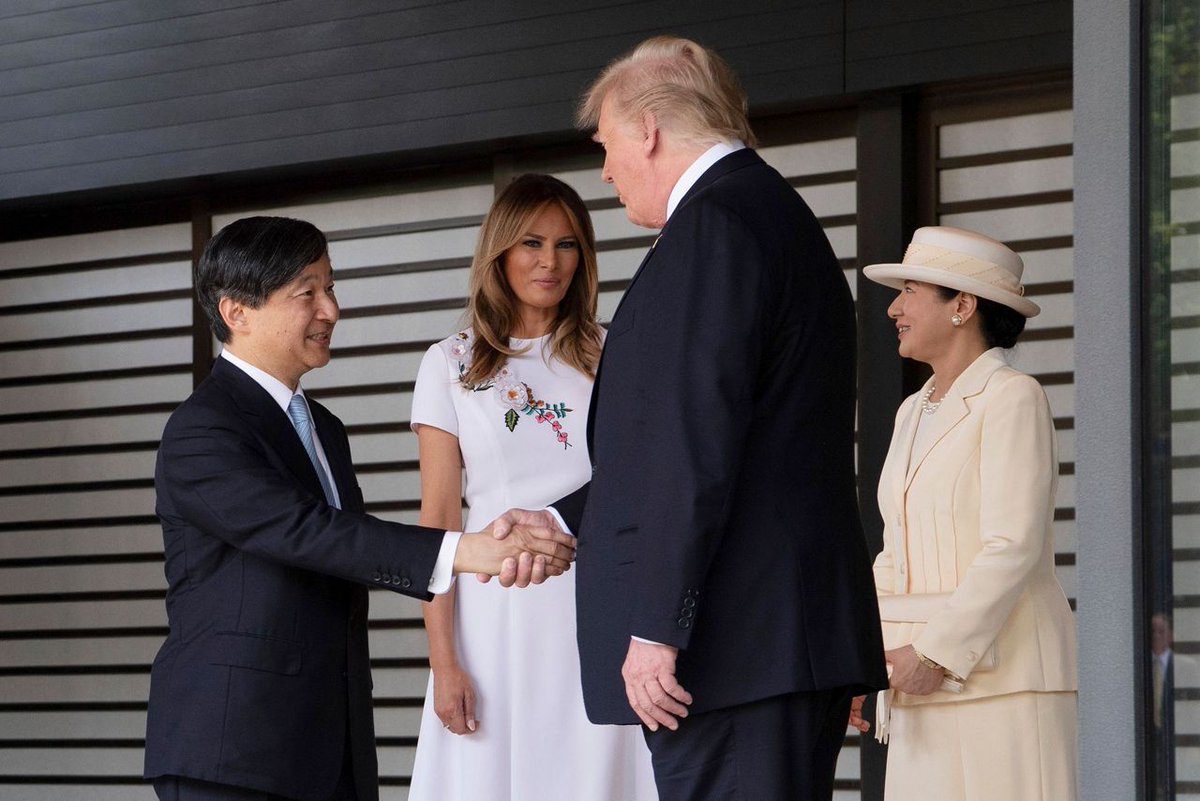The Rolling Thunder motorcycle gang of Trump = Night Wolves motorcycle gang of Putin: same NeoNazi Esthetics
- Get link
- Other Apps
The Rolling Thunder motorcycle gang of Trump = Night Wolves motorcycle gang of Putin: same NeoNazi Esthetics
rolling thunder 2019
rolling thunder 2019
WASHINGTON (Reuters) - The Rolling Thunder motorcycles that descend on Washington, D.C. every Memorial Day weekend made their final ride on Sunday, ending a three decades-old tradition that was initially meant to serve to pay tribute to fallen and missing-in-action soldiers.
The veterans advocacy group, formed in 1987 by 73-year-old Vietnam veteran Artie Muller, got its name from a 1965 bombing campaign against North Vietnam dubbed “Operation Rolling Thunder.”
President Donald Trump gave the group a shout out on Twitter on Sunday, where he pledged that the annual rides in Washington would continue.
“The Great Patriots of Rolling Thunder WILL be coming back to Washington, D.C. next year, & hopefully for many years to come,” Trump wrote.
For years, the group has become synonymous with the annual Memorial Day celebration in the nation’s capital, where thousands of motorcycles meet in the Pentagon parking lot and continue their ride across the Memorial Bridge toward the National Mall.
Late last year, the group announced it would be making this May its final ride, citing a lack of cooperation by law enforcement and rising costs of permits.
The Defense Department told ABC News that they support peaceful demonstrations and were prepared to support the 2019 Rolling Thunder ride.
In an interview with Reuters TV, Muller said that while this will be the final ride, the event will also mark the beginning of a new chapter.
“We’re not really talking about a legacy here because we’re not going away. We’re just spreading out and we hope to get stronger. That’s what our idea is on this, so coast to coast — North, South, Midwest,” Muller said.
Reporting by Temis Tormo in Washington; Writing by Sarah N. Lynch; Editing by Lisa Shumaker
Next Page of Stories
Loading...
Page 2
Strategic Intelligence: A Handbook for Practitioners, Managers and Users
Don McDowell, (Lanham, MD: The Scarecrow Press, Revised Edition, 2009), 286 pp
Reviewed by Peter C. Oleson
Don McDowell’s Strategic Intelligence, A Handbook for Practitioners, Managers and Users is a useful book for those learning how to approach complex intelligence analyses and estimates. Much of what McDowell addresses will be old hat to experienced analysts in Intelligence Community agencies, but for those with limited experience in strategic analyses or those who have worked mostly in current intelligence, investigatory work, or operational support this book provides a pertinent guide. It should be most helpful to those involved in strategic analysis in the security, law enforcement, and compliance and regulatory communities at the federal, state, and local levels. Many of the considerations the author addresses would also be useful in private sector competitive intelligence analyses and academic research.
McDowell provides an interesting, non-American perspective on the doctrine of doing strategic analysis. A former director of the Strategic Crimes Studies Unit of the Australian Attorney-General’s Department, McDowell has taught the principles of intelligence analysis and management to intelligence, law enforcement, and tax authorities in Europe, Africa, Asia, Australia, and Latin America. The original version of this book was self-published in 1998.
The author discusses general concepts of strategic analysis, issues for clients and managers, and processes and techniques, adding his own critical observations gained from four decades of international intelligence experience. His definitions are clear and memorable. For example, McDowell writes: “From a conceptual point of view, intelligence as a practice exists to illuminate the obscure, to forecast what is yet to come, to explain the ‘iceberg’ of truth beneath the tip of what can be seen.” He neatly differentiates between “clients” and “customers”: A “client” is the person who commissions the analysis and is, therefore, a major stakeholder in the effort; a “customer” is someone who reads the resulting intelligence and may, or may not, be a stakeholder. McDowell defines “strategic intelligence analysis” as a “specific form of research that addresses any issue at a level of breadth and detail necessary to describe threats, risks, and opportunities in a way that helps determine programs and policies.” Its main purpose is to help management develop policies, strategies, and programs. As such, strategic intelligence analysis is distinctly different from, but complementary to, tactical or operational intelligence analyses, which are focused on specific targets or individuals and support the day-to-day activities of operational line units.
McDowell argues that every nation should invest in a strategic intelligence research unit to examine trends and futures, and he outlines the concepts, organization, resource requirements, and staffing considerations of such a unit. He believes any strategic analysis unit should be a separate and distinct entity, not an add-on to an operational agency. He states: “One thing is certain: Inevitably, there are no benefits derived from mandating [strategic intelligence analysis] to an existing agency. All already have their own functions and responsibilities…and [points of view]. This also serves to insulate the strategic analysis unit from the immediate pressures on agency management and the crisis of the moment. This is an interesting postulation when the reader reflects on the US Intelligence Community’s internal arguments over the removal of the National Intelligence Council from CIA when the Director of National Intelligence was established.
Most of the book focuses on the process of strategic intelligence analysis—from initial tasking by the client through planning the schedule and resources needed (often an afterthought in the US Intelligence Community), planning the needed collection of information, approaches to collating and evaluating data, planning the analysis phase, developing hypotheses, and presenting the final judgments of the analysts. In this, McDowell is quite thorough. Part IV of the book, “Processes and Techniques,” is the most useful part for those needing a “how to” book. Starting with chapter 8 McDowell lays out the methodology for undertaking strategic analyses.
After initially studying the problem to gain a conceptual framework for the strategic analysis and breaking the problem into its components, the author, in chapter 9, “Defining the Task: Prescribing the Boundaries of the Project,” emphasizes the criticality of the terms of reference and study project plan, and provides a sample outline. In subsequent chapters he addresses generating hypotheses, developing indicators, data collection plans, collating and evaluating collected data, deciding on analytical approaches, and writing reports. In discussing data collection plans, McDowell recommends an initial two-step process of first conducting a data audit to determine what is known and then listing gaps and deficiencies in knowledge that should drive collection requests. He emphasizes the importance of data quality, which he defines as accuracy, reliability, and completeness.
Addressing the age-old conflict between the collector and the analyst over how much the analyst should know about the source, McDowell comes down on the side of the analyst: Analysts must know “how collectors” gain their access, how they record their observations, and whether there is a particular focus or skew in their observation and data collection routines that is consistent—or inconsistent—with that required of the strategic analysis.” He also warns against both the “official data only” syndrome and a vacuum cleaner approach. Strategic intelligence analysis is likely to draw from many sources, and especially open sources. Unless one is willing to be inundated with chaff, McDowell admonishes analysts to gather only the data that is relevant to the analysis. He further instructs analysts to insist on data in a form that is relevant to their needs, not as the source may prefer to provide it.
McDowell puts more emphasis on the collation of data than many. He stresses the importance of the registry function and selecting an appropriate collation approach and system. In his chapter on analytical approaches, the author identifies many, but not all, analytical methods that may be germane. Those interested in the details of analytical approaches will need to look elsewhere for more definitive explanations. He addresses the issue of quantitative versus qualitative analysis and concludes that no one approach alone is appropriate to a complex strategic analysis. Selecting the right approach for the subset of the problem being studied is one of the analyst’s most important decisions. McDowell acknowledges in several chapters the benefits of automated processing tools but largely does not address specific tools that might be applicable to analysts.
Clearly McDowell is an analyst at heart and believes that the analyst should reign supreme in the strategic intelligence process, stating, “The analyst must control the whole strategic intelligence process.” This view reflects his international experience in countries where the intelligence functions are not as dominated by the collection agencies as in the United States. He also argues for a “tight relationship” between the analyst, the manager, and the client of the strategic intelligence analysis. “Bonding” is the term used. “This is pivotal to ensuring that those who need the service [the clients] can relate effectively to its practitioners and providers, so that a candid exchange and negotiation of information, views, and suggestions can be facilitated.”
McDowell also argues that analysts should make recommendations to clients based on the results of strategic analysis. As it is a manager’s tool, to be relevant strategic intelligence analysis must address what one does, how one does it, and the legal framework. Otherwise the analysis is incomplete. While perhaps ideal, McDowell’s philosophy begs the problem of management/policy influence on the analysts’ conclusions, and in the US context, may cross the policy-analysis divide. McDowell, of course, is not constrained by the politics in the United States, and his identification of the legal framework reflects his law enforcement experience. Nevertheless, McDowell’s views are relevant in non-IC analytical environments and in private industry where such issues may not exist.
Throughout the book McDowell offers sage advice to analysts and managers of analysts alike. “Production of strategic intelligence is almost never a task that is simple or quick,” McDowell observes, and the impatience of clients can be a problem for analysts. Speedy analysis leads to sloppiness and errors. Above all a disciplined approach must be taken to ensure correct analysis. Clients sometimes direct that a specific approach be taken. McDowell writes: “All too often, managers and clients tend to put a spin on the way in which a potential strategic study topic is articulated, a spin that embodies their expectations, most urgent priorities, resource problems, and frustrations.” This is a bad practice.
Strategic Intelligence is a doctrinal book on how to approach strategic analysis and do it well, avoiding the many pitfalls that can derail analysis. This book is not a detailed military field manual but it contains a lot of common sense gained through broad experience.
[Top of page]
All statements of fact, opinion, or analysis expressed in this article are those of the author. Nothing in the article should be construed as asserting or implying US government endorsement of its statements and interpretations.
Read the whole story
· · · · · ·
9:58 AM 5/27/2019
#KaiserTrump is #IntelligenceOperation by #NewAbwehr, #BND, #GermanIntelligence, #GerhardScroeder, #ErnstUhrlau. It #Reveals their #collective #RepetitionCompulsion #Neurosis: the #need to #recreate the #painful #themes of #German #History and to #Undo, symbolically and very much in real life the #Sequelae of WW2.


 mikenov on Twitter
mikenov on Twitter

 mikenov on Twitter
mikenov on Twitter

11 likes, 5 retweets
 mikenov on Twitter
mikenov on Twitter



1 like
 mikenov on Twitter
mikenov on Twitter

89 likes, 14 retweets
 mikenov on Twitter
mikenov on Twitter
#KaiserTrump is #IntelligenceOperation by #NewAbwehr, #BND, #GermanIntelligence, #GerhardScroeder, #ErnstUhrlau. It #Reveals their #collective #RepetitionCompulsion #Neurosis: the #need to #recreate the #painful #themes of #German #History and to #Undo, symbolically and very much in real life the #Sequelae of WW2.

#KaiserTrump is #IntelligenceOperation by #NewAbwehr, #BND, #GermanIntelligence, #GerhardScroeder, #ErnstUhrlau. It #Reveals their #collective #RepetitionCompulsion #Neurosis: the #need to #recreate the #painful #themes of #German #History and to #Undo the #Sequelae of #WW2.
#CIA pic.twitter.com/d33vNltcsR
#CIA pic.twitter.com/d33vNltcsR

Posted by  mikenov on Monday, May 27th, 2019 12:29pm
mikenov on Monday, May 27th, 2019 12:29pm
 mikenov on Monday, May 27th, 2019 12:29pm
mikenov on Monday, May 27th, 2019 12:29pm
Read the whole story
· · · · · · · · · · · · · · · · · · · · · · ·
#Thus, the #mostlogical #conclusion #uptodate is: #DonaldTrump is the #Asset of the #NewAbwehr (#Global #Services) & #GermanIntelligence (#BND). This is #masked by his #demonstrative #antagonism #toward #GerhardSchroeder.
#InvestigateTrumpDeutscheBankConnection! #InvestigateBND pic.twitter.com/fFK4PdqsG9
#InvestigateTrumpDeutscheBankConnection! #InvestigateBND pic.twitter.com/fFK4PdqsG9

Posted by  mikenov on Monday, May 27th, 2019 1:08pm
mikenov on Monday, May 27th, 2019 1:08pm
 mikenov on Monday, May 27th, 2019 1:08pm
mikenov on Monday, May 27th, 2019 1:08pm
Read the whole story
· · · · · · · · · · · · · · · · · · · · · · ·
In Pics | Interesting photos: #DonaldTrump's visit to #Japan
bit.ly/2X6AXh2 pic.twitter.com/rds0Um5Eb9
bit.ly/2X6AXh2 pic.twitter.com/rds0Um5Eb9

Posted by  EconomicTimes on Monday, May 27th, 2019 11:30am
EconomicTimes on Monday, May 27th, 2019 11:30am
 EconomicTimes on Monday, May 27th, 2019 11:30am
EconomicTimes on Monday, May 27th, 2019 11:30am
Retweeted by  mikenov on Monday, May 27th, 2019 1:31pm
mikenov on Monday, May 27th, 2019 1:31pm
 mikenov on Monday, May 27th, 2019 1:31pm
mikenov on Monday, May 27th, 2019 1:31pm11 likes, 5 retweets
Read the whole story
· · · · · · · · · · · · · · · · · · · · · · ·
#DonaldTrump enjoys sumo wrestling in Japan
For more: photogallery.indiatimes.com/news/world/don… pic.twitter.com/5c8vK4mNBT
For more: photogallery.indiatimes.com/news/world/don… pic.twitter.com/5c8vK4mNBT



Posted by  TOIPhotogallery on Monday, May 27th, 2019 9:37am
TOIPhotogallery on Monday, May 27th, 2019 9:37am
 TOIPhotogallery on Monday, May 27th, 2019 9:37am
TOIPhotogallery on Monday, May 27th, 2019 9:37am
Retweeted by  mikenov on Monday, May 27th, 2019 1:32pm
mikenov on Monday, May 27th, 2019 1:32pm
 mikenov on Monday, May 27th, 2019 1:32pm
mikenov on Monday, May 27th, 2019 1:32pm1 like
Read the whole story
· · · · · · · · · · · · · · · · · · · · · · ·
U.S. 🇺🇸 President #DonaldTrump becomes first head of state to meet Japan's 🇯🇵 new Emperor ddnews.gov.in/international/… pic.twitter.com/Syp2fJ1Rt9

Posted by  DDNewsLive on Monday, May 27th, 2019 9:52am
DDNewsLive on Monday, May 27th, 2019 9:52am
 DDNewsLive on Monday, May 27th, 2019 9:52am
DDNewsLive on Monday, May 27th, 2019 9:52am
Retweeted by  mikenov on Monday, May 27th, 2019 1:33pm
mikenov on Monday, May 27th, 2019 1:33pm
 mikenov on Monday, May 27th, 2019 1:33pm
mikenov on Monday, May 27th, 2019 1:33pm89 likes, 14 retweets








Comments
Post a Comment